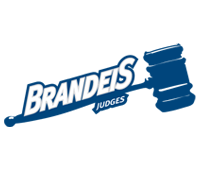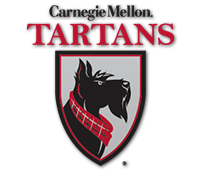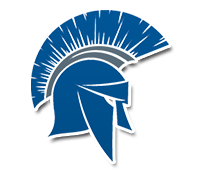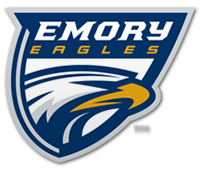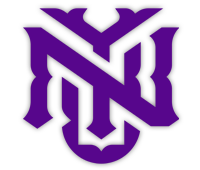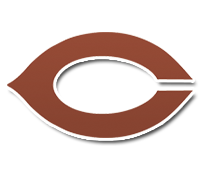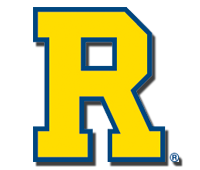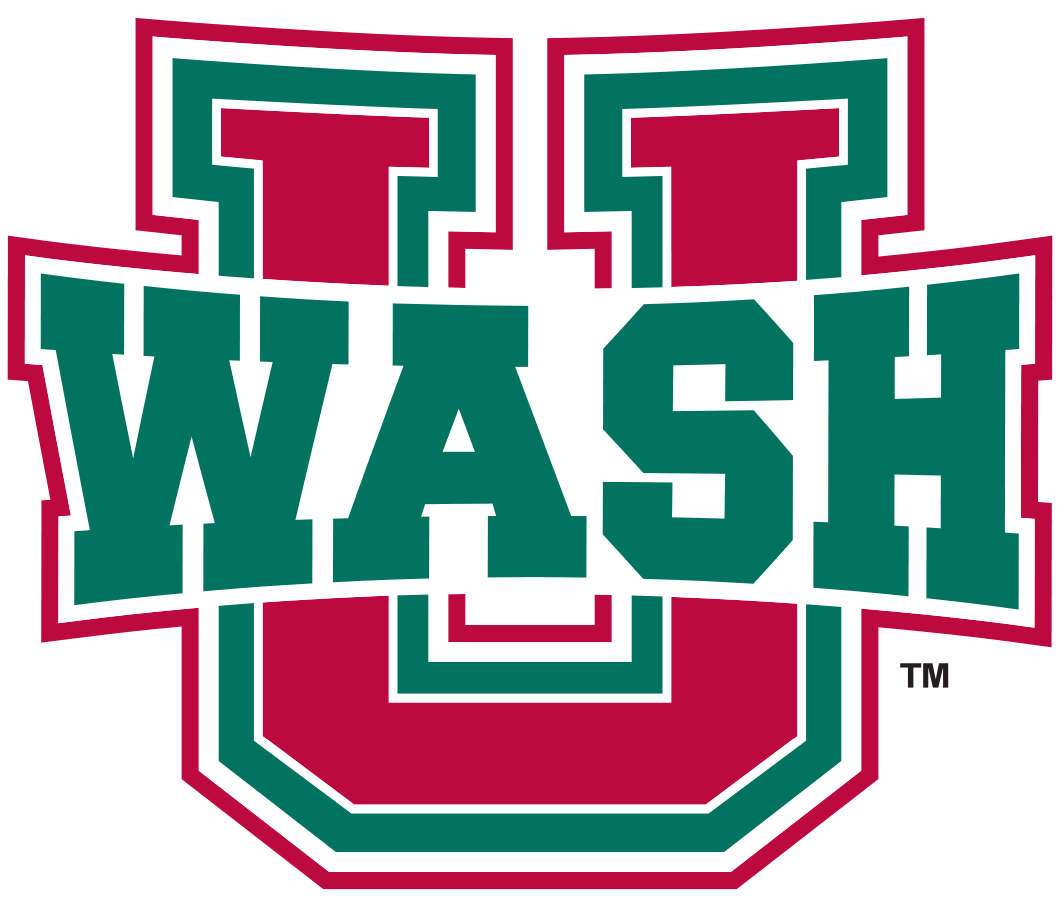
From the time he was in the seventh grade, Chris Williams set his sights on becoming a professional athlete, but thought perhaps he would be a lawyer after his athletic career ended. “Looking back now, one out of two isn't bad, but that was always my struggle, the balance between athlete and student,” Williams remarked. “In my neighborhood in Dorchester, sports or prison/death were considered the only options to leave.”
The current Senior Counsel for Sunovion Pharmaceuticals Inc. in Boston never could have envisioned the winding road that would make that dream become a reality. Among other things, the high school basketball player ended up earning Most Outstanding Performer honors in all seven UAA Indoor and Outdoor Track & Field Championships in which he competed for Emory University.
"In the seventh grade, we did a mock trial. I adamantly wanted to be the judge," Williams recalled. "Instead, the young lawyer who was running it chose me to be the lead lawyer and it was really fun. I remember thinking then that I wanted to go to law school. It stuck in my head. There were times I may have needed to recalibrate that decision, but in the end, it is a good framework for the way my mind works."
From the first through ninth grade, Williams was part of the Metco Program in Boston, which allowed him to attend school in Lexington. The Metco Program is a grant program funded by the Commonwealth of Massachusetts intended to expand educational opportunities, increase diversity, and reduce racial isolation, by permitting students in certain cities to attend public schools in other communities that have agreed to participate. "I had to get on the bus at 5:45 a.m. every day and we would go all over Boston picking up kids to go to school," Williams said. "Those were very long days."
Williams' mother fell ill and Williams' best friend's family took him into their home in Lexington for his sophomore year in high school. The change in the daily commute was far from the only change in his life at that time. "My best friend's father was a professor at MIT and he was very focused on education," Williams stated. "I was playing basketball, my first love, but he felt the night games and practice schedule were impeding upon my education and preventing me from excelling in school. His first instinct was for me not to play any sports my junior year, but eventually he allowed me to compete in indoor track because practices were right after school and the meets were on Saturdays."
The transition was not an easy one for Williams. "Quitting basketball was so hard. I almost certainly would not have made pro basketball, but I was still dreaming,” he said. “The indoor track wrapped around the basketball court and the basketball team would come in about halfway through track practice. They ragged on me for a while, but they understood. Ninety-seven percent of the students at the school went to college. The focus was on academics. It took a long time to accept that there were other options, to look forward to being something other than a pro player.”
Initially, Williams admits his track career started with him being more interested in getting his driver's license than the few races he ran. Things changed quickly however. "Success makes any adaptation work," he stated. "It wasn’t long before I got real track shoes and put it together after a few races. I had to train myself not to look back at my basketball career."
Williams knew he wanted to leave the Boston area. "I needed a change of scenery," he said. "I wanted to go South or West, where it was warmer." For two months before going on college visits, he was sure he was going to the University of Virginia. He had heard of Emory through a guidance counselor whose son went to Emory and added it to the list of campuses. In addition to Virginia and Emory, he visited Lehigh University, College of William & Mary, and Duke University.
"The trip to Virginia was a sports recruiting visit," Williams remembered. "They talked about how I could compete in track and play football. It was almost too appealing. I was concerned about being that athlete who didn't become anything after sports was done."
Things fell into place on his visit to Emory. "It just happened the day I got there was the nicest day of the entire trip," he stated. "The campus was great and Coach (John) Curtin was as proud of Academic All-Americans as All-Americans. He wanted to structure me to compete at the highest level and excel academically. There were times where I just wanted to be an athlete and there times where, through the influence of others (like my friend’s dad) or my own motivations, I realized that I could, and should, be focused on being more than that. Emory had people who were able to be both students and athletes. I was in awe of them.”
"I remember he forgot to even get picked up at the airport at UVA (Virginia)," Curtin said. "When he got on campus, he said, 'I am going here.' He was the greatest athlete we have ever known and the easiest recruit."
The first year at Emory was another adjustment for Williams. "I wasn’t even training in the first semester with the team as my grades were not as good as I had hoped. I needed to refocus," he said. "I had to adjust my expectations. I had not accounted for the challenge of the other students, who were mentally on their grind," he commented. "It was a competitive school. I was taking some math and science and a regular core of classes. They were serious and real students working to get to the next level. It took me a little time to get in the right groove. Once I did, everything went really well."
Things started strongly in his first career race even if he didn't realize it as it was happening. "My first race was at the Clemson Indoor Meet," he recalled. "It was the craziest track I had ever seen. It wrapped around the basketball stadium with a bunch of blind turns. You could not see more than 20 yards ahead of you at a time. The inside lane was so close to the wall, you had to run in perfect form."
"We are in the blocks and I look over at guys from places like Clemson and Duke. All of a sudden, they are gone. I was left in the starting blocks wondering, 'Did the race start?'" he laughed. "I had never been beaten that badly in my life. Then Coach Curtin runs over and says, 'Great job. You just broke the school record (in the 55-meter dash).' I had faced the best of competition before I was ready for it."
Williams appreciated racing against competitors from NCAA Division I schools, but never regretted choosing Emory. "It was great to race competitively against them," he said. "But I was where I was by choice. You see those Athletes of the Week on the gym at Emory and the All-American plaques lined up, and you know what you want to accomplish."

He finished his NCAA career with five top-five performances, but it was the UAA Indoor Track and Field Championships where he has his fondest memories. “Some years, I was more amped for UAAs than nationals,” he recalled. “We had not won a UAA championship as a team and that was the thing I wanted. I grew up playing team sports with basketball and football so that team concept was the driving force for me. Celebrating as a team was the point of winning and it is what I wanted us to achieve.”
His first UAA championship was the 1992 UAA Track and Field Championships in Pittsburgh. “I was waiting for someone on our team to say something and finally I just pulled everyone aside and said, ‘Let’s go!’ My mentality was to influence the team to succeed and enjoy the fun and excitement,” he remarked. “UAAs was my chance to address the team and get them pumped up. We had a team objective and we needed to be loud on the sidelines.”

“He was a different kid at UAAs. He was so locked in and got a sense of what it was about,” Curtin said. “He loved competing against his peers and really wanted to make a statement. He was really good at relating that to the rest of the team. They didn’t just respect him – they looked at him in a different way, in awe.”
Williams did make a statement in his first championship, winning the 200-meter dash and running on the Eagles’ winning 1,600-meter relay in earning the first of his seven Most Outstanding Performer awards. It was only the beginning of his outdoor success. In 1993, he won four individual events (100 meters, 200 meters, long jump, and triple jump) while running on the victorious 400- and 1,600-meter relay teams. At the 1994 outdoor championship, he won the 200-meter dash for the third consecutive time and added another event to his title collection by winning the high jump. An injury kept him from participating in the 1995 outdoor championship.
“He was a man among boys,” Curtin commented. “He could have started for the basketball team and been an All-American diver. He would watch someone dive and then just go and do it. He could have been a great soccer goalie. His intramural basketball team won everything every year.”

Another thing that Curtin said benefitted Williams was being pushed in practice by teammate Troy Thompson. “They had a tremendous friendly competition going on,” he said. “They really went at it in the high jump. Troy was better in the triple jump and a little better in the long jump, but Chris blew him away on the track.”
In a six-year period from 1992-97, Williams and Thompson combined to win five Most Outstanding Performer awards at the UAA’s outdoor meets. The indoor championships were even more successful for the duo with Williams (four) and Thompson (two) combining for the top honors six times, including sharing the honor in 1996. The two led the Eagles to their first two UAA indoor titles in 1995 and 1996. “Those two guys basically won us those championships,” said Curtin, whose teams have gone on to win five more UAA indoor titles.
In his senior year, he began applying to law schools. “I had good LSAT (Law School Admission Test) scores, but my grades weren’t fantastic so I think admissions people were confused about who I was. They didn’t understand the time it takes to compete in a sport at a national level,” he said. “I applied to 12 schools, got rejected at two and wait-listed at 10 good schools. I was on the preferred wait list at Georgetown and two weeks before school started, they offered me a spot. At the time, I was working at a law firm so I chose to defer and had to apply the following year with a ‘soft promise’ that I would get in.”
He re-applied at Georgetown and this time was wait-listed, not even on the preferred wait list as he had been the year before. He was dating a woman in California at the time and went to see her, stopping in at University of Southern California. “USC offered me a spot before I even got back to her house and I was happy about it, but I received a pile of mail from my apartment in Atlanta and there was a seven-inch thick packet from Georgetown saying I had been accepted,” he recalled. “10 days before school started, I called my adopted folks in New Jersey and asked them to drive down to D.C. and find me an apartment. It was a really a really good decision for me. Georgetown was not going to be duplicated anywhere else.”
Four years after graduating from Georgetown Law, Williams took on a completely different challenge when he applied for, and was one of 12 finalists of more than 10,000 applicants, the ESPN reality television show Dream Job with the winner to earn a spot as an ESPN anchor. “He had to be away from work and his employer wasn’t up for that, but he pursued it anyway,” Curtin recalled. “He was the only finalist with no journalism background and different a relationship with (now deceased) Stuart Scott.”
Now Williams finds himself back in familiar territory in the Boston area and has a 10-year-old daughter. “I have to take stock of my life from time to time. I feel some pride and joy about where I ended up in life. It makes the grind of work worth it,” he remarked. “I needed to get out of Boston when I did, but it was important for me to get back. I needed distance from my family situation and I was having trouble with myself. When I got back, I had my time and self-focus, period. I put my air mask on me first. It was important for me to come back and be in a position to be helpful to others.”
When people ask John Curtin who stands out from his long tenure with the Emory program, he doesn’t hesitate with his answer. “It is easy. I don’t even have to think twice,” he said. “If you ask any of the coaches around here who the best athlete ever was, they will say Chris Williams.”
Although Williams finally retired from playing recreation league basketball, he continues to challenge himself. “I am still incredibly competitive, but don’t have as many outlets for that competitiveness as I used to,” he reflected. “I have to find something that pits you against me. Now that is chess, golf, and bowling.”
Curtin maintains that Williams has not lost his touch with motivating track and field student-athletes. Years after he graduated, Williams came to a UAA meet in Boston to talk to the team. “It was quiet and jaws were dropping when he spoke to the team at UAAs,” Curtin said. “He still had the thunder when speaking to the team at Brandeis.”


